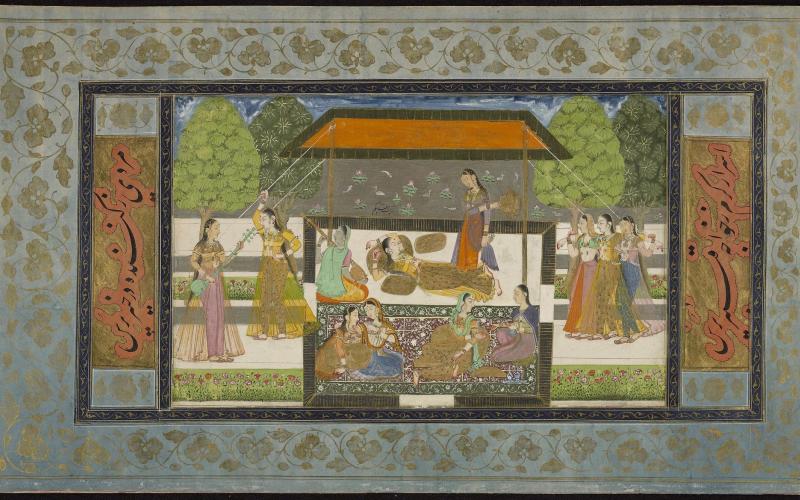
The Garden of Bedil: The Indo-Persian Literary and Cultural Landscape
September 22, 2022—September 24, 2022 · A17 Julis Romo Rabinowitz Building
Program in South Asian Studies

The Program in South Asian Studies is organizing a three-day festival, “The Garden of Bedil: The Indo-Persian Literary and Cultural Landscape” to be held at Princeton University on September 22-24, 2022. The festival includes a student-focused poetry reading workshop on September 22, a multi-disciplinary in-person conference on September 23, with a virtual session on September 24, and a musical concert on the evening of September 24.
To register for the virtual session on September 24, please use this link:
https://princeton.zoom.us/webinar/register/WN_bAyDjupeT2WWWrL5y8IUJg
Registration is not required for the in-person events.
Bedil (1644-1720) is widely considered one of the greatest Persian poets of all times and the foremost exponent of the “Sabk-e-Hindi” or Indian style of Persian poetry. Born in Bihar, buried in Delhi, and widely celebrated in Afghanistan and Central Asia, Bedil belonged to the syncretic Indo-Persian culture that had evolved over centuries. While Bedil wrote in the Persian language, his mother tongue was Bengali, and his thoughts and poetics were heavily influenced by Sanskrit philosophy and aesthetics. Bedil’s persona and his poetry are deeply rooted in the rich and complex Indo-Persian literary and cultural landscape. This literature festival at Princeton intends to bring together scholars, students, artists, and community members to celebrate Bedil’s poetry and his legacy, examine the multiple contexts of his work, and explore the larger Indo-Persian literary and cultural landscape that he belonged to.
A music concert by Humayun Khan Ensemble, blending Bedil’s Persian poetry with Indian classical ragas will be one of the main highlights of our festival and will take place on Saturday, September 24 at 7:00 pm in Maeder Hall Auditorium in the Andlinger Center for Energy and the Environment. Humayun Khan is an Afghan singer and composer who is known for his brilliant performances as a virtuosic vocalist and harmonium player. Humayun’s style of singing which blends Farsi poetry of the great masters with Indian classical Ragas will lend itself well to the theme of the festival. Humayun is formally trained, both in the Indian classical music, as well as the Sarahangi tradition of singing Bedil’s poetry in Afghanistan.
The academic conference is co-sponsored by the Department of Near Eastern Studies, with support from Suresh S. Tata ’72.
The concert is co-sponsored by the Chadha Center for Global India, the Center for Iran and Persian Gulf Studies, the Humanities Council, the Departments of Comparative Literature, Music, and Near Eastern Studies, and the Program in Near Eastern Studies.















